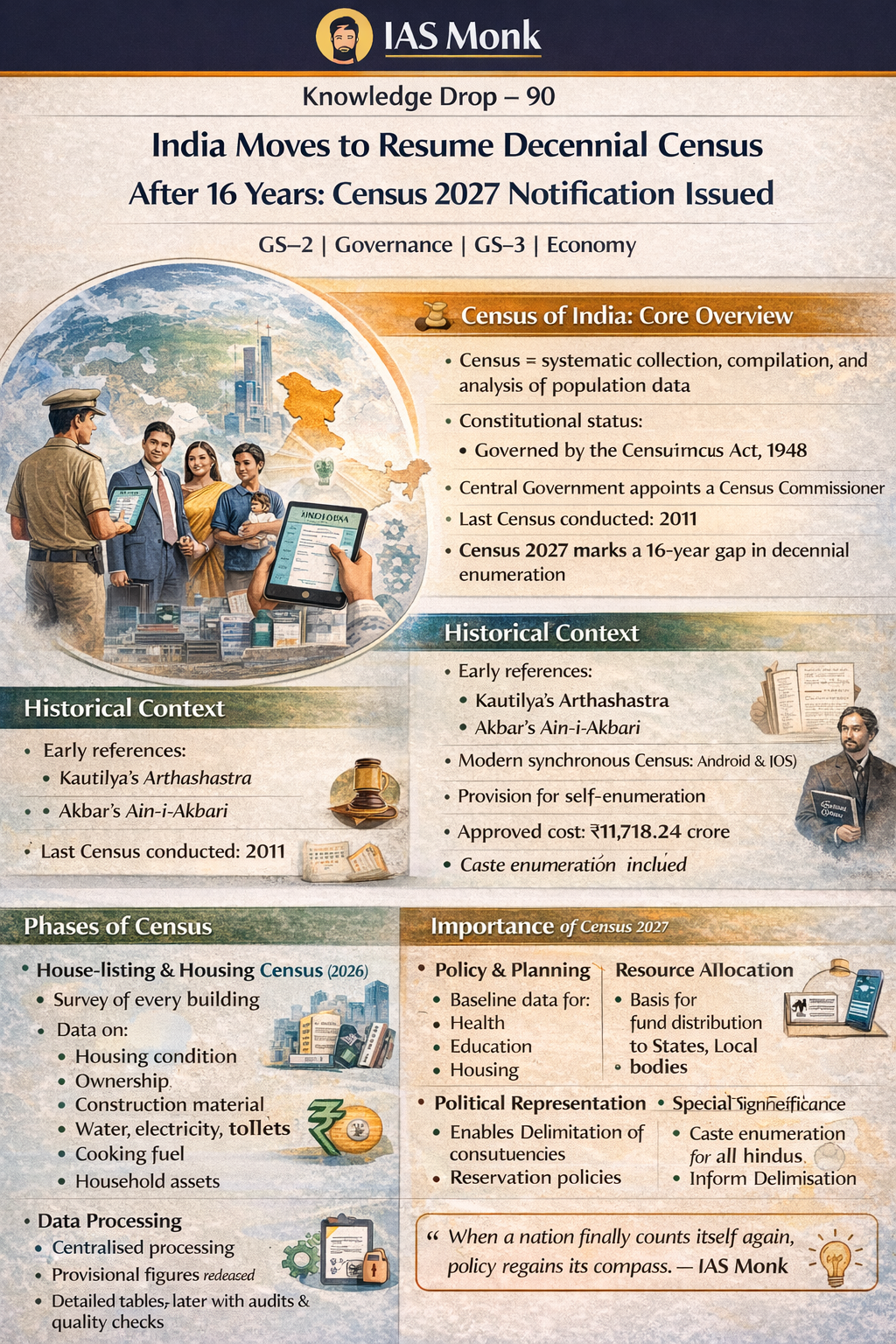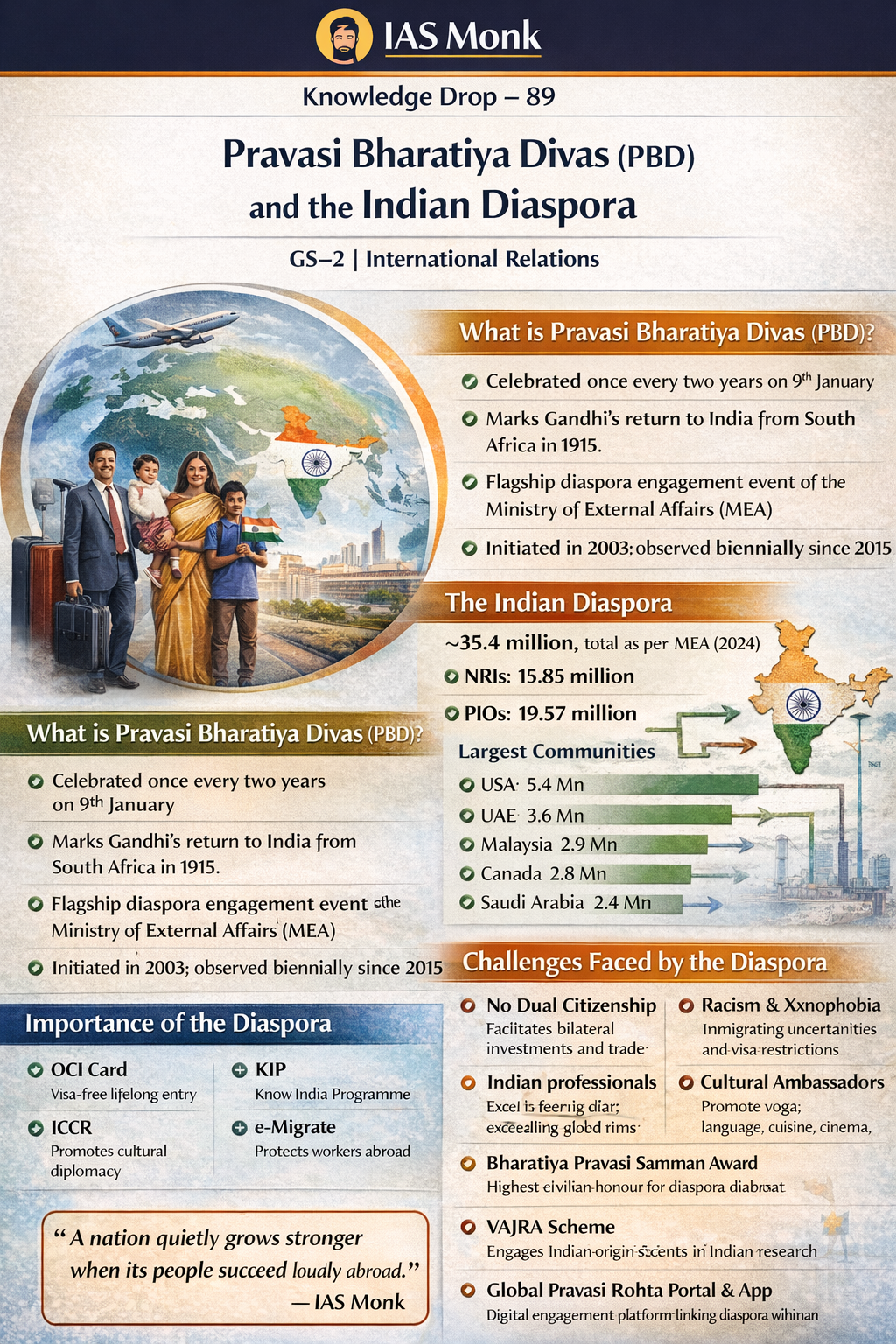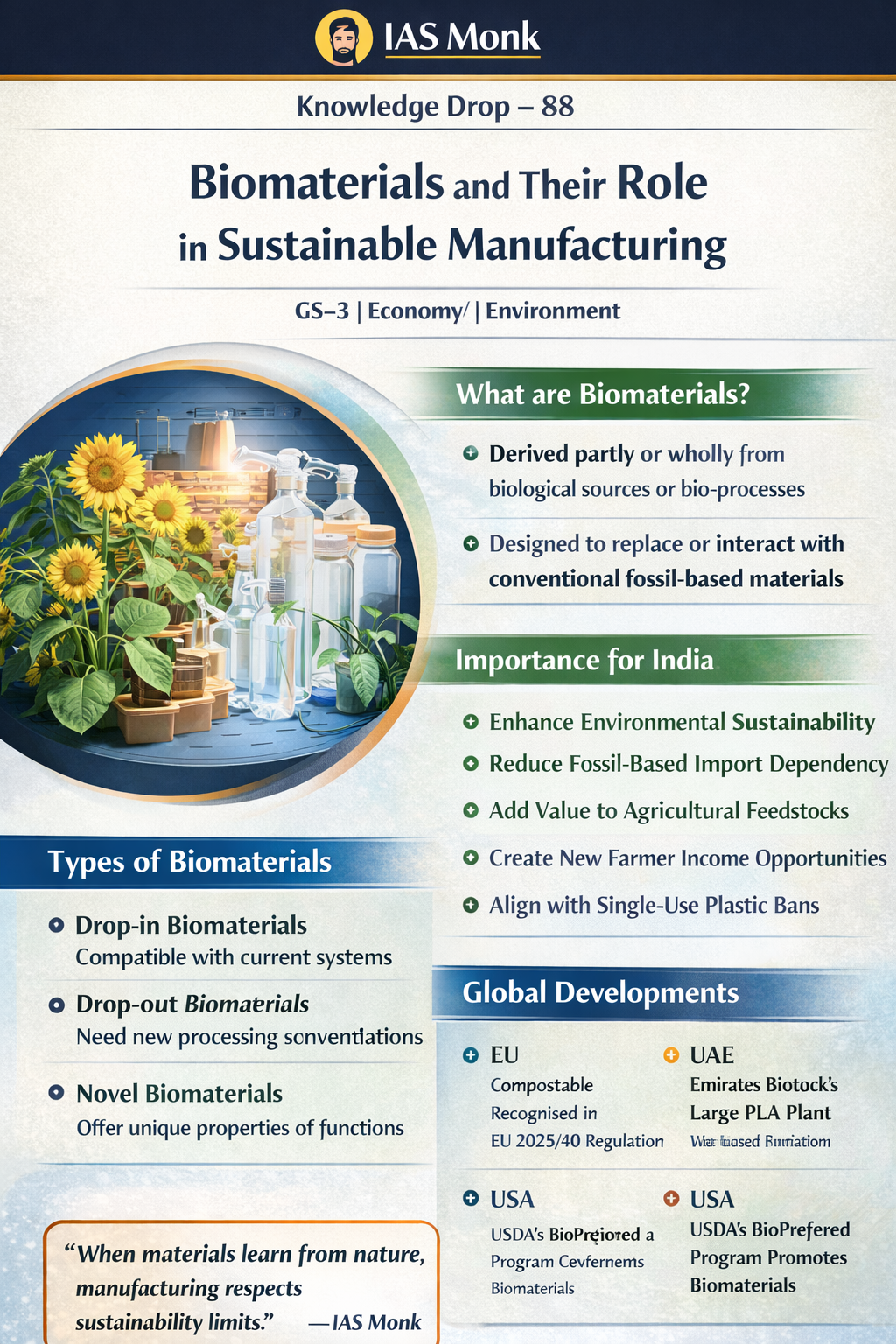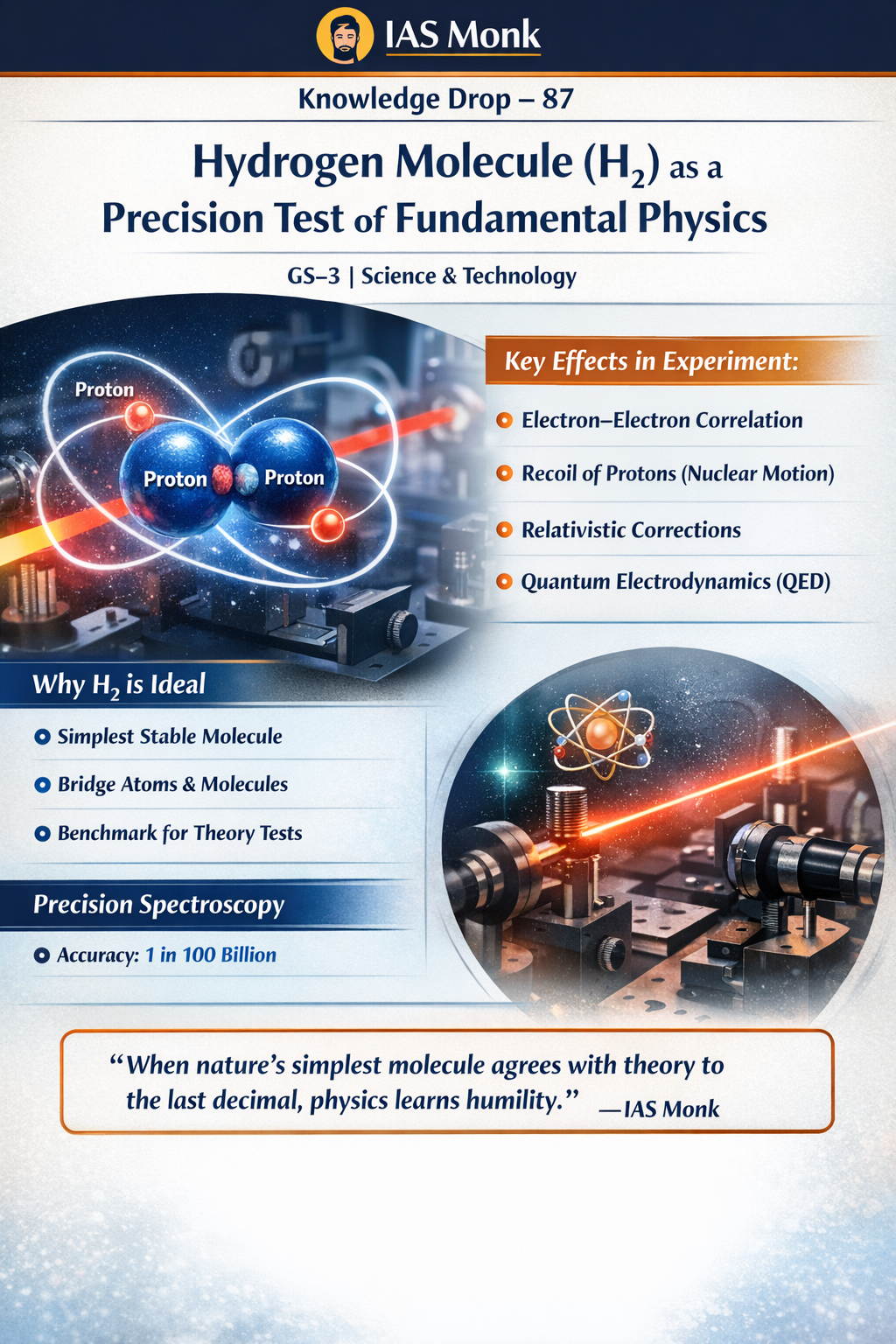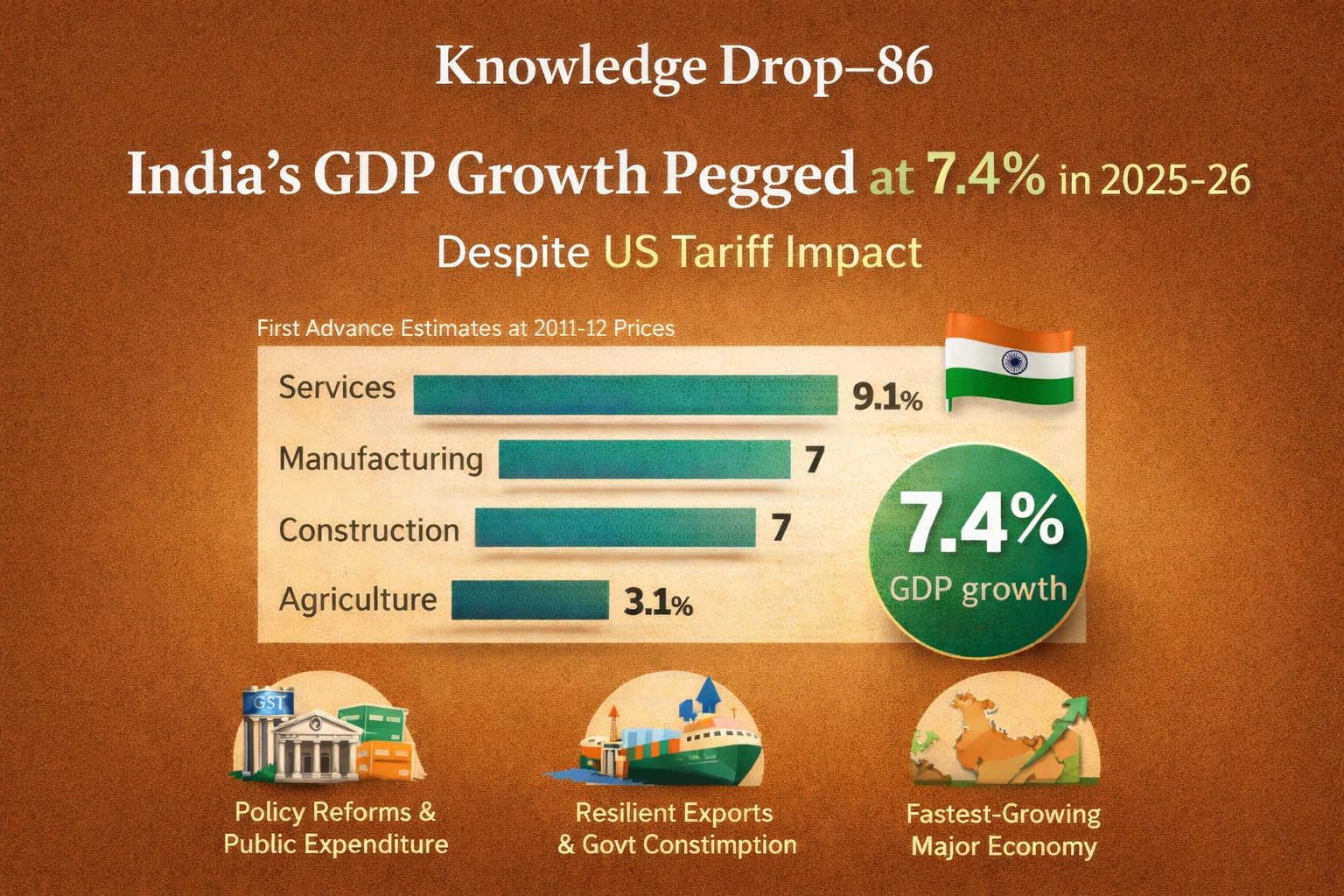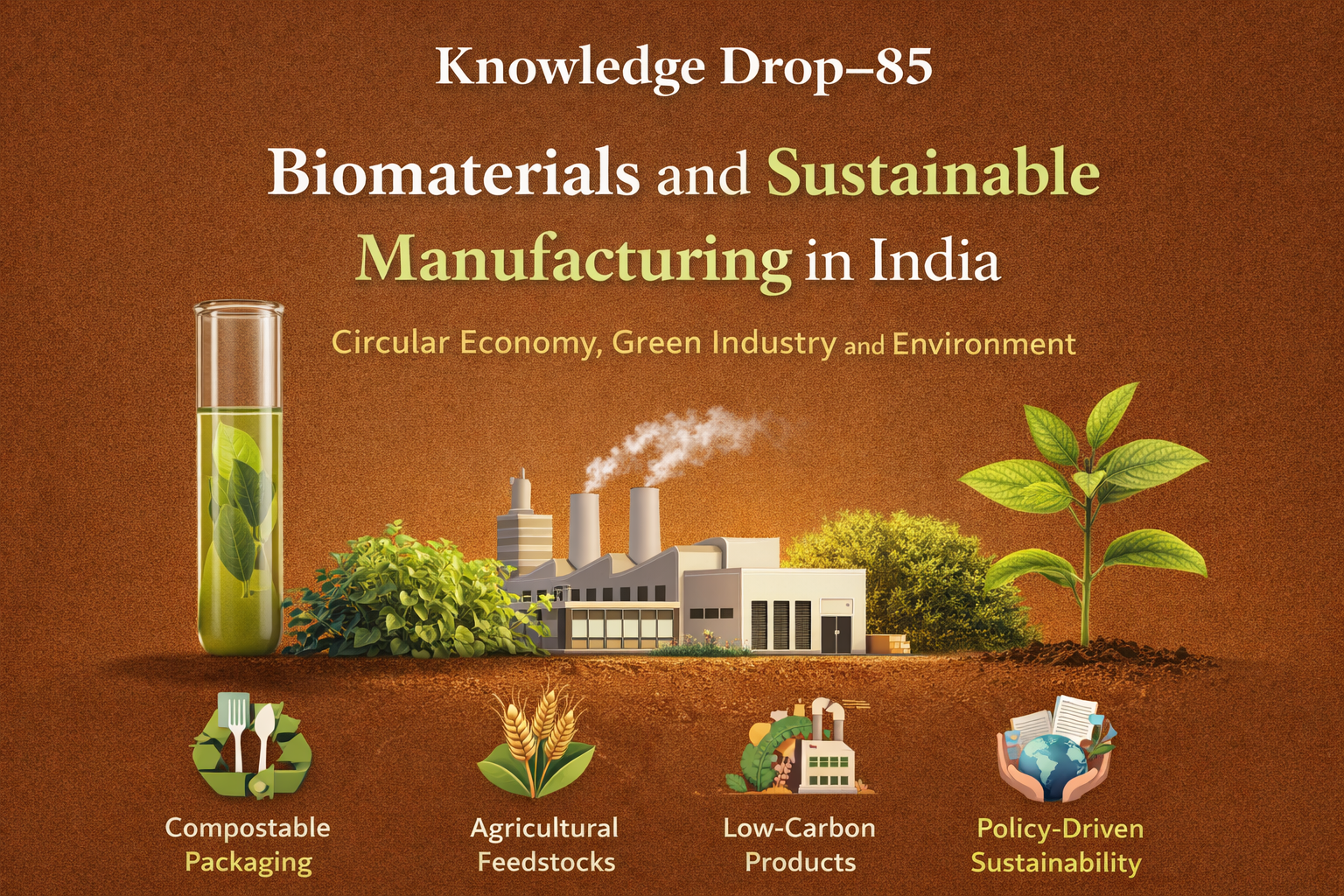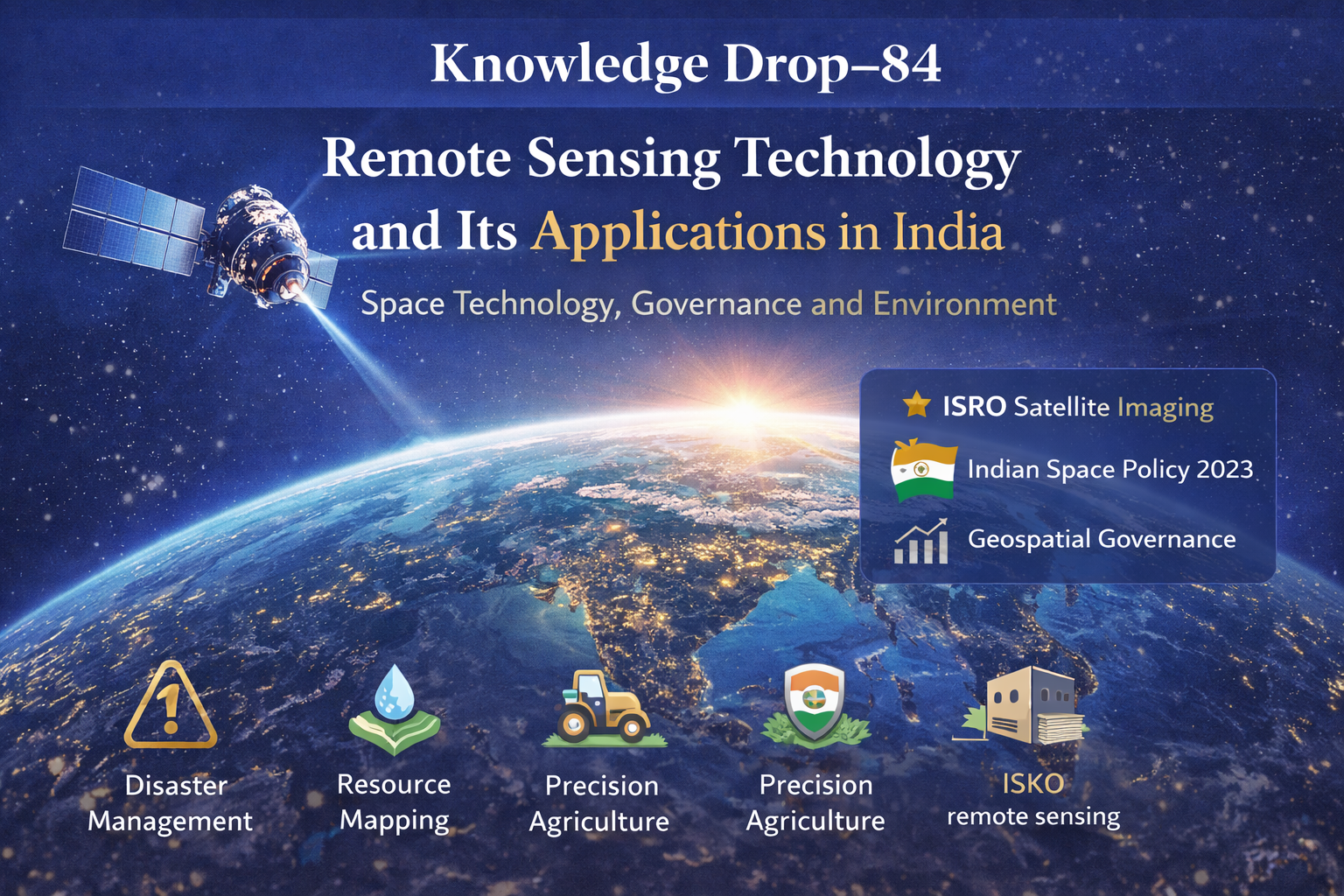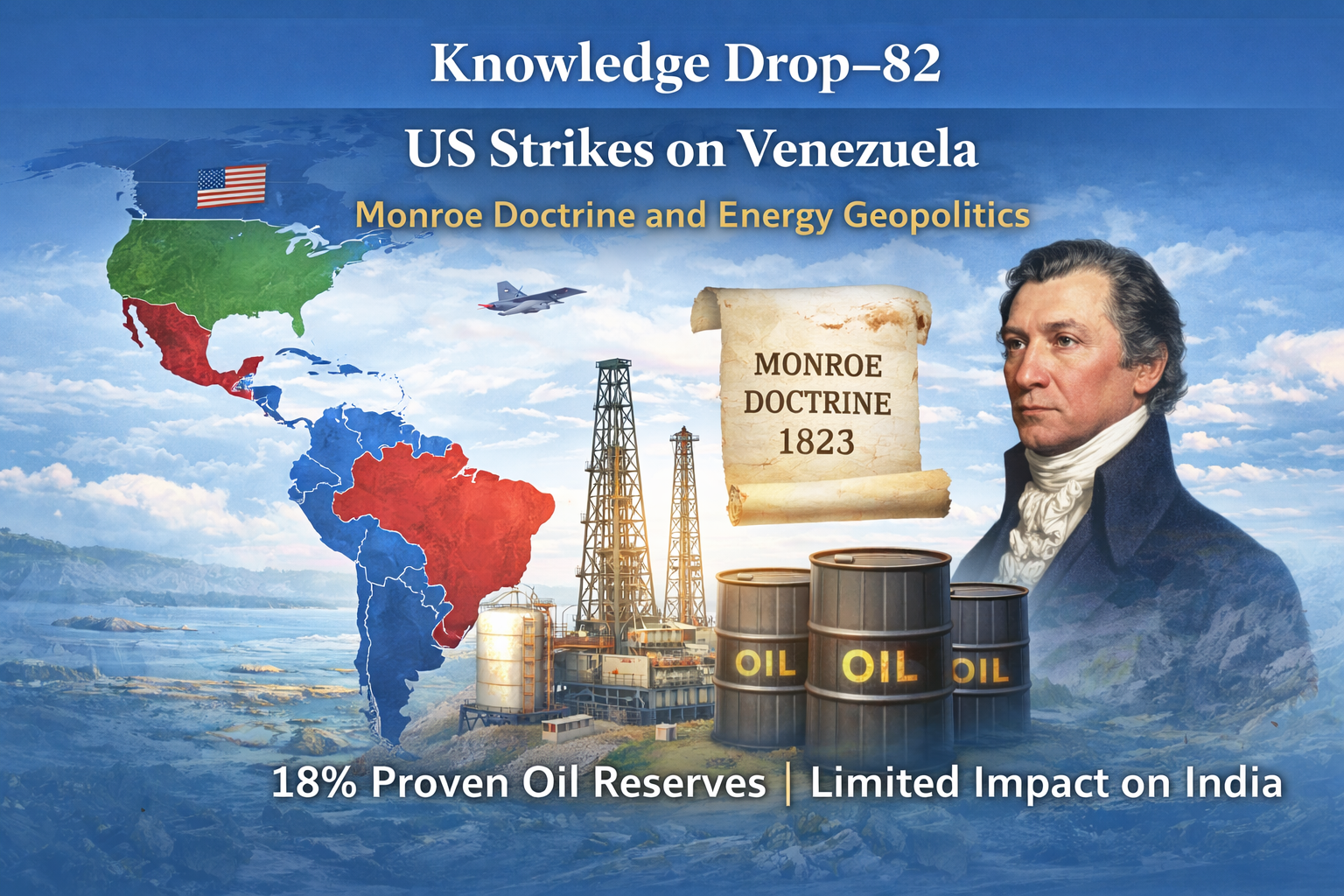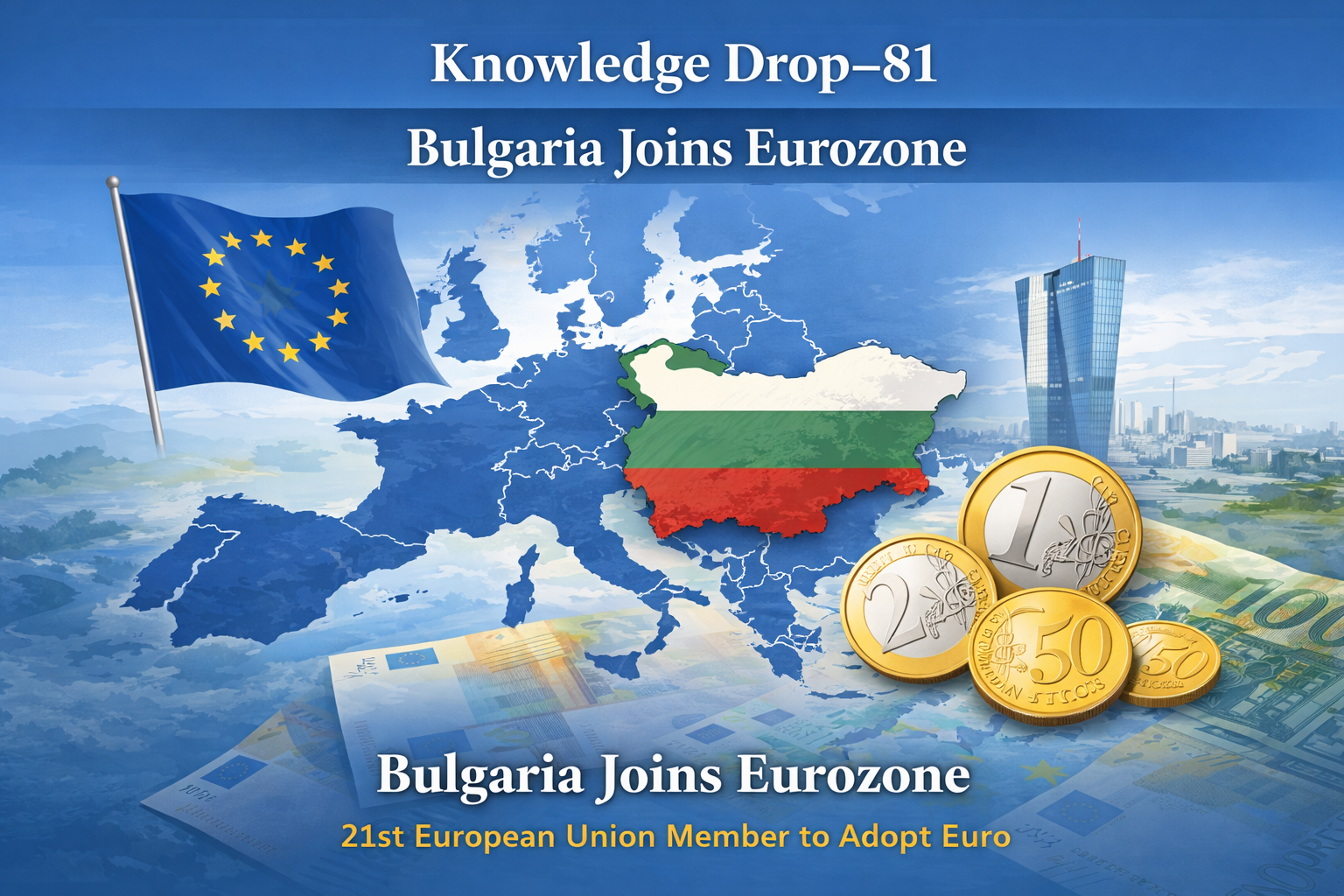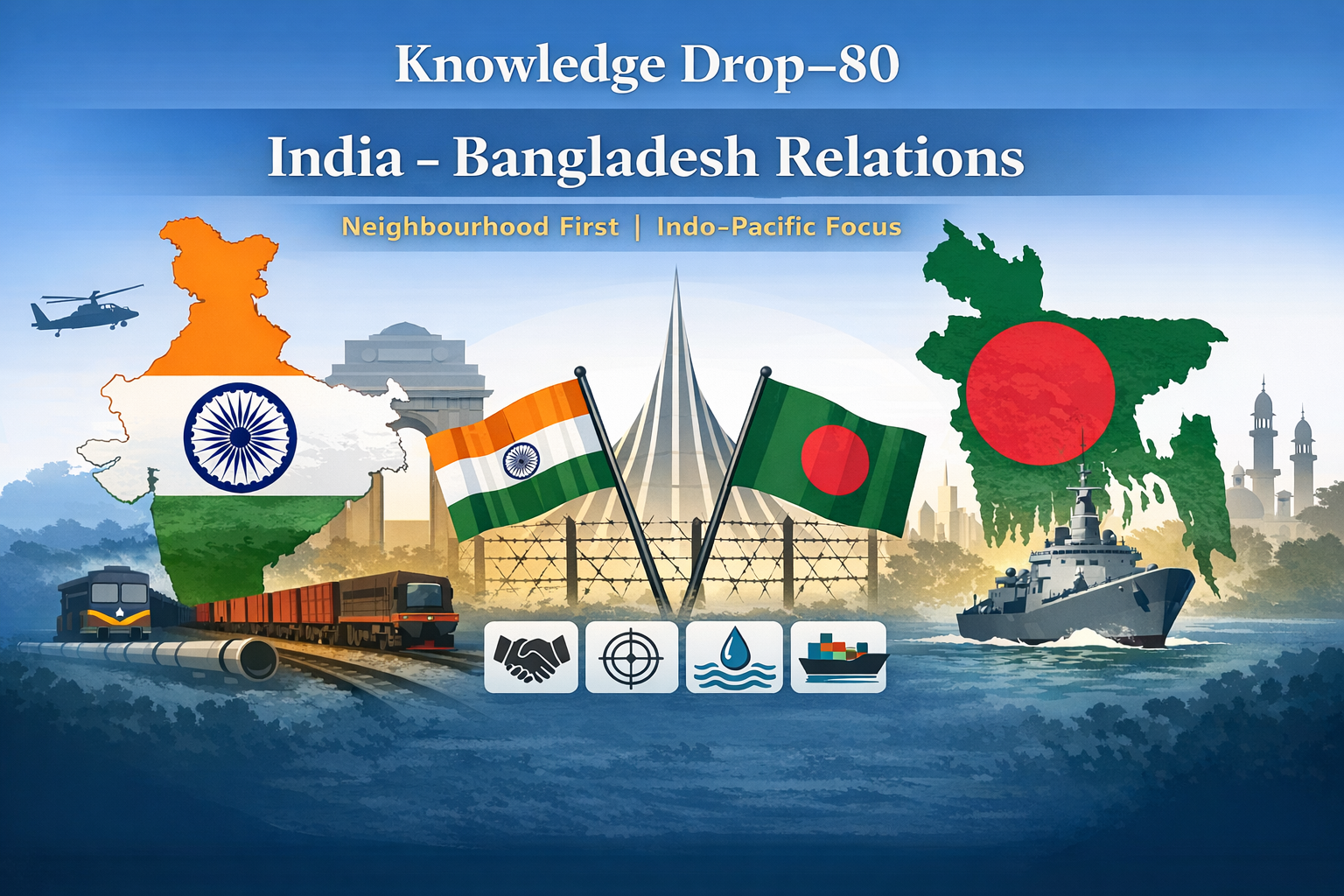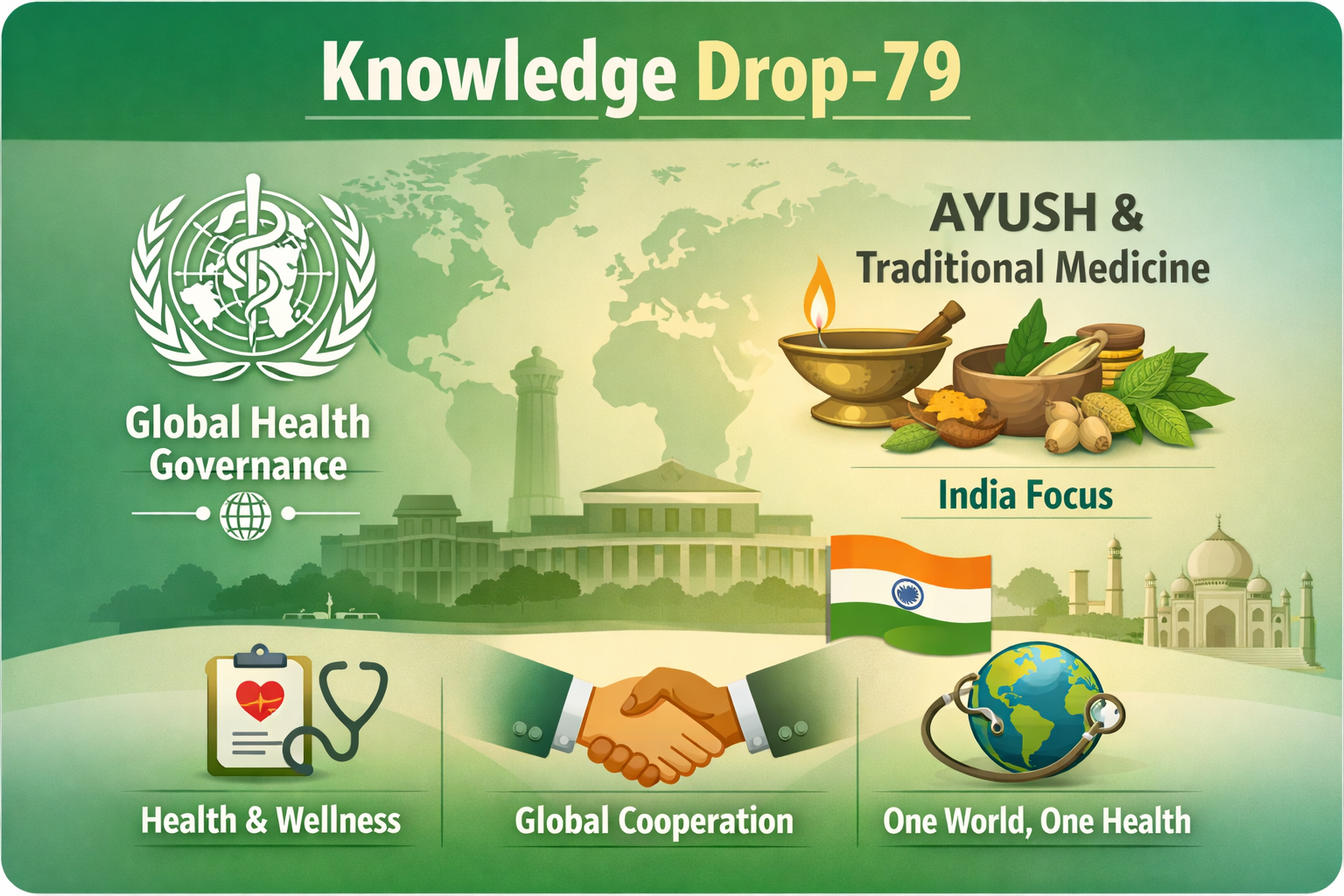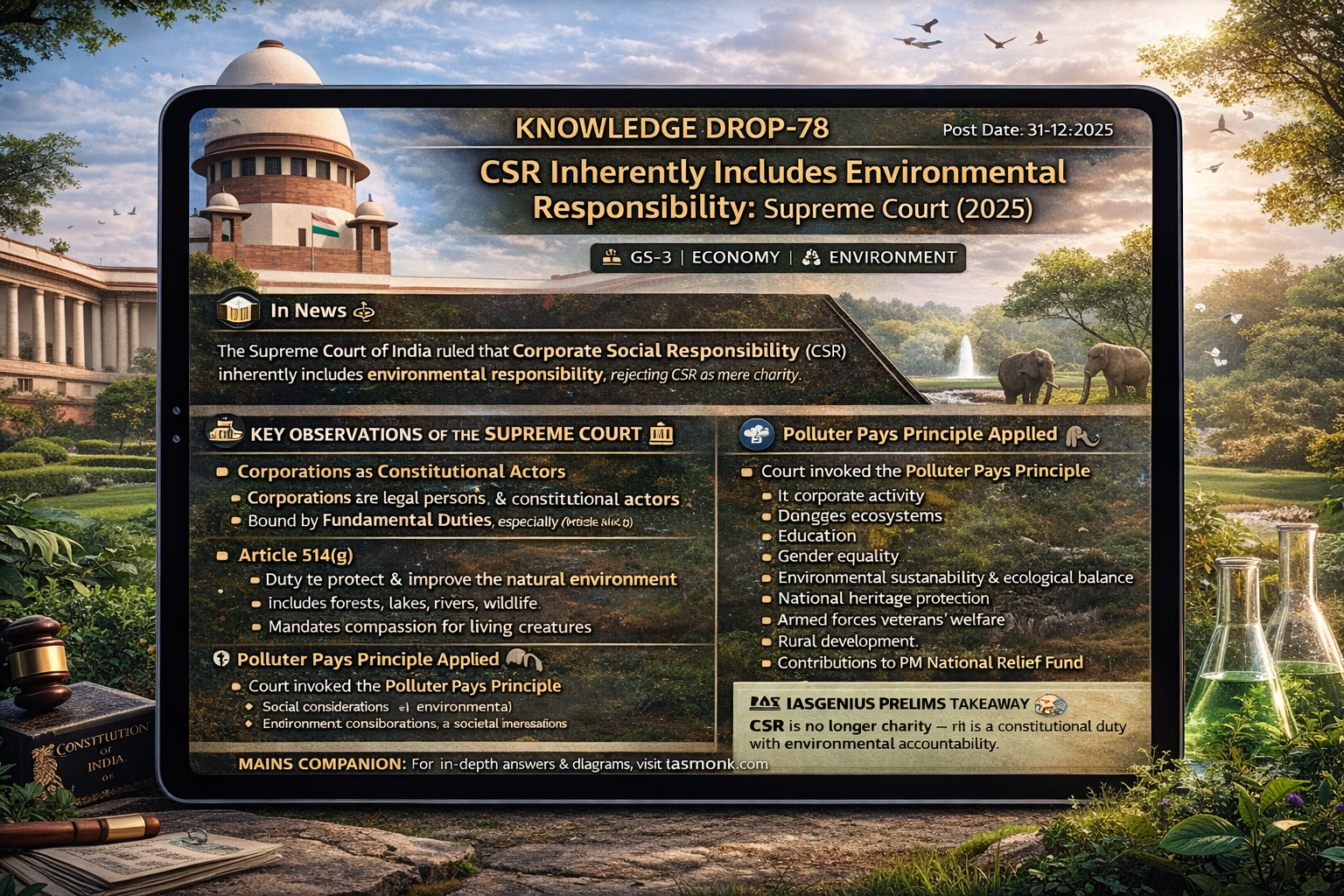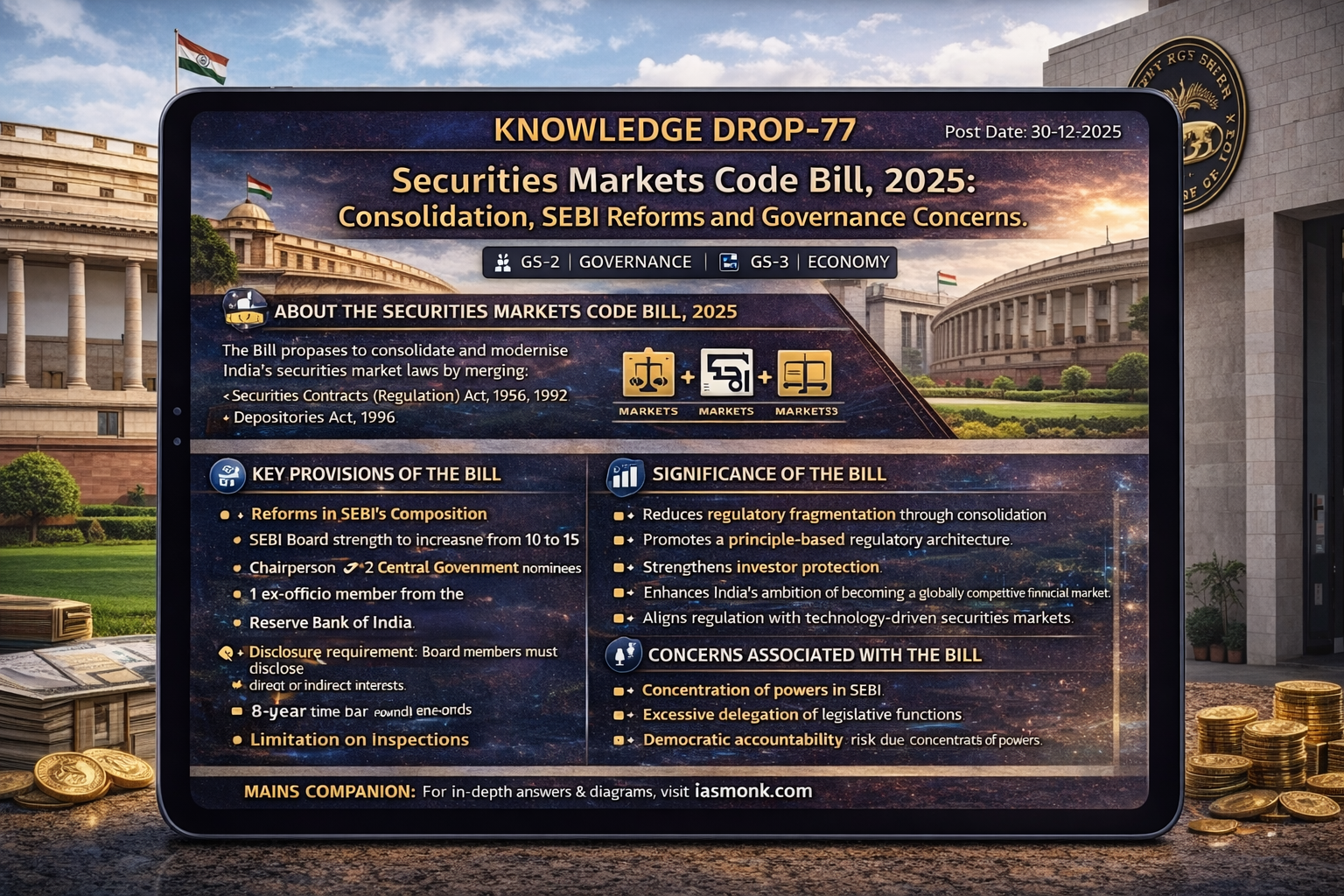
012. Ice, Oil, and Ambition – The Arctic’s Silent Race for Power ❄️
International Relations, Climate Change, Geography, Security, Maritime Governance
By IAS Monk / April 2, 2025

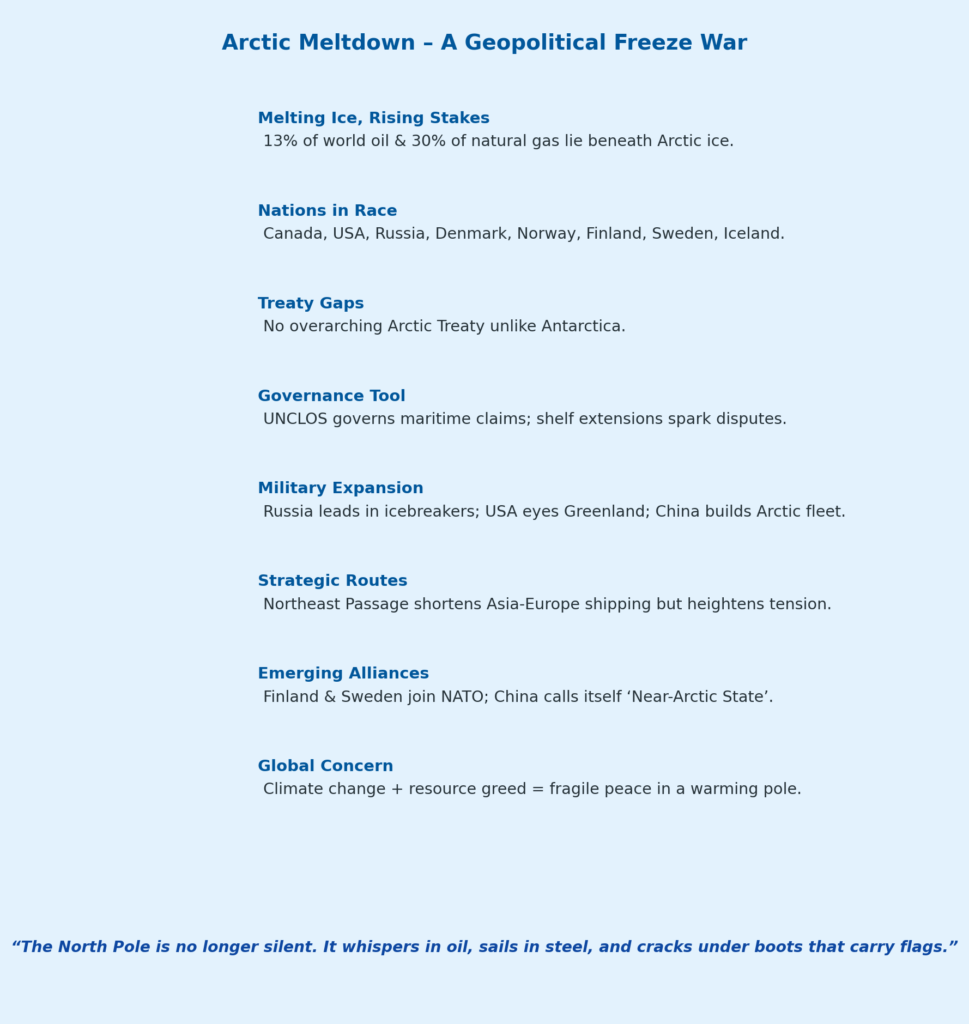
🌡️ Climate Meltdown, Resource Boom
- Ice retreat accelerating due to climate change
- Arctic holds:
➤ 13% of world’s undiscovered oil
➤ 30% of untapped natural gas
➤ Rare earth elements, minerals - Resource race now heating diplomatic and defence zones
🗺️ Arctic Nation Control
| Members of Arctic Council | Canada, Denmark, Finland, Iceland, Norway, Russia, Sweden, USA |
|---|---|
| Governing Framework | UNCLOS governs maritime claims; No Arctic Treaty like Antarctica |
- Nations using “continental shelf prolongation” to expand claims
- Overlaps are increasing friction and rivalry
⚔️ Military Posturing
- Russia: World’s largest fleet of icebreakers
- USA: Strategic interest in Greenland (tensions with Denmark)
- Canada–USA Dispute: Northwest Passage status
- NATO Expansion: Sweden & Finland raise Arctic readiness
- China: Declared itself “Near-Arctic State”, building nuclear icebreaker
📦 Shipping & Trade Routes
- Melting ice unlocks Northeast Passage (Asia–Europe shortcut)
- Potential game-changer for global trade
- Russia–China corridor emerging, but guarded cautiously by Moscow
📉 Treaty Void vs Treaty Model
- Antarctica: Protected by international treaty (1959)
- Arctic: No such overarching peace/security agreement
→ High geopolitical risk with military drills, weapons, and oil rigs converging
📚 Relevance for UPSC
- GS1: Geopolitical Geography, Map-Based Awareness
- GS2: IR – Global Alliances, Maritime Laws
- GS3: Climate Diplomacy, Energy Security
- Essay: “As the Arctic melts, it reveals not peace—but possibility, power, and peril.”
✨ Closing Whisper
“The North Pole is no longer silent. It whispers in oil, sails in steel, and cracks under boots that carry flags.”
🔥 A Thought Spark – by IAS Monk
The Arctic is no longer a frozen unknown—it’s a strategic frontier where the thermometer measures not just temperature, but tension.
Its melting isn’t just ecological—it’s a geopolitical drip that might flood borders, economies, and peace.

